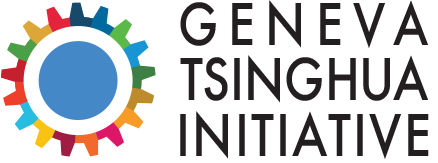 SDG Accelerator
SDG Accelerator
The SDG Accelerator provides support to student teams working on SDG-related projects to scale up their innovations through the different innovation phases. The objective is to enable students to learn about social-impact innovation by developing their own ideas.
How does it work? Students supported by the SDG Accelerator benefit from coaching sessions on the social innovation process. They use their own ideas as case studies for the coaching activities. Periodically, they will be invited to present their progress ito a panel of experts. In those presentations, students will articulate their progress and needs. The experts then evaluate how the needs could be covered by the SDG Accelerator program, or by other sources of support for social and technological innovations.
Who can apply? In its first phase, the SDG Accelerator supported projects initiated by students frequenting the GTI’s education programs, the SDG Summer School and Dual Degree Master. Interest in the SDG Accelerator has increased considerably and projects from other University of Geneva students are now also eligible.
What are the criteria? The three main selection criteria are : Significant Impact. How does the proposed project address the SDG? More specifically, how does it relate with SDG Indicators and metrics, and what are the expected outcomes? Clear Feasibility. Does the team have a well-developed, realistic plan to achieve the goals of the project? Has the team identified the right partners and domain experts needed for the implementation? Well-defined Needs. Has the team a clear idea of what the main challenges facing the project are and what resources (human, technological, scientific, financial) are needed to overcome these challenges?

Submission guidelines
Project submissions to the SDG Accelerator are accepted at any time, there is no specific deadline.
Please send your proposal to Jose Luis Fernandez Marquez ([email protected]), Head of the SDG Accelerator, including brief answers to the following questions:
The Project
- What is the name of the project?
- Who are the people already involved in the project? (name, institution, email, role in the project)
The Problem
- What is the problem you are trying to solve? Use metrics where possible: for example approximately how many people are affected, and how the problem impacts their lives.
- What SDGs is this project tackling? What targets and indicators are relevant?
The Solution
- Tell us in a few lines how your solution would address the problem.
- What other approaches have been tried before? What makes your solution better?
- In an ideal case, what is the expected impact of your project within 5 years?
- What stage is your project at? What are the major achievements to date?
- What geographical areas will benefit from your solution?
SDG Data
- What types of data are you consuming or producing in this project?
- How are these data related to SDG targets or indicators?
- How will the project share the data it generates?
Impact and Risk
- How will you measure and evaluate the impact of the project?
- Who are the key partners to maximize the impact of your solution?
- How do you plan to sustain and increase the impact of your project?
- What are the major risks in this project and how would you mitigate them?
Needs and budgets
- What are the main needs preventing your project from moving forward?
- What types of resources would you need to cover those needs?
